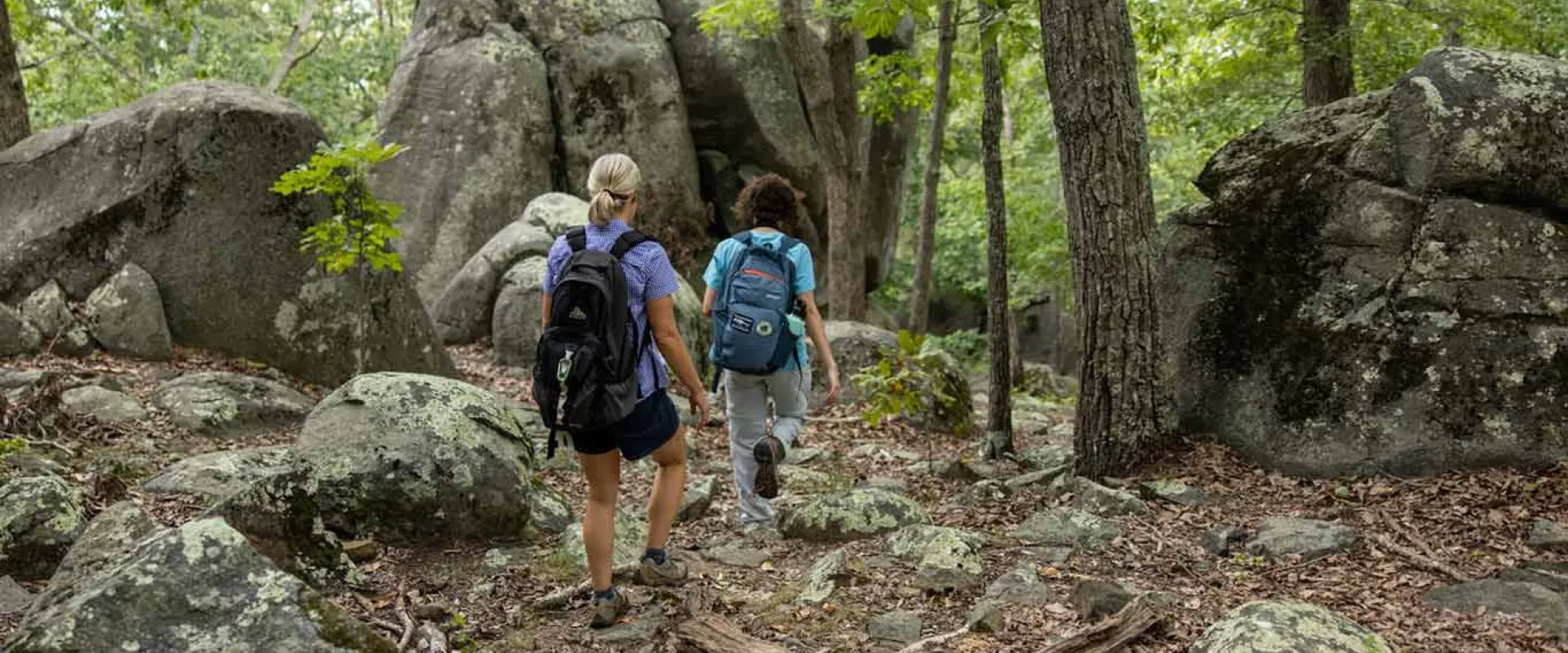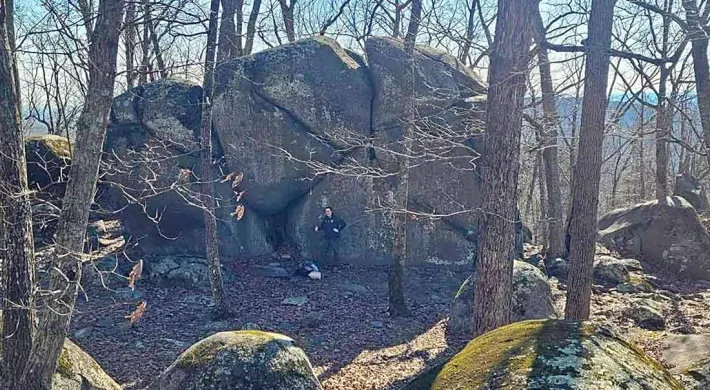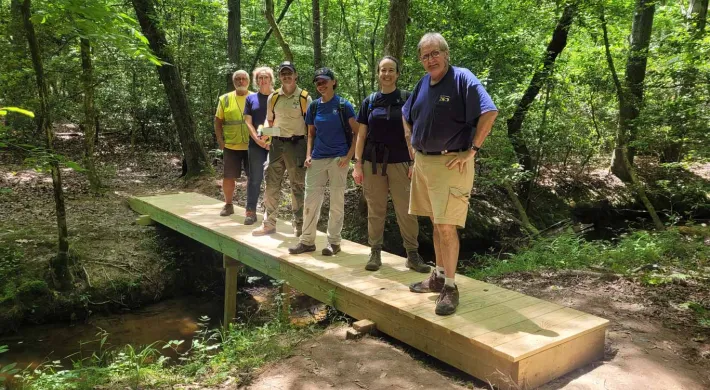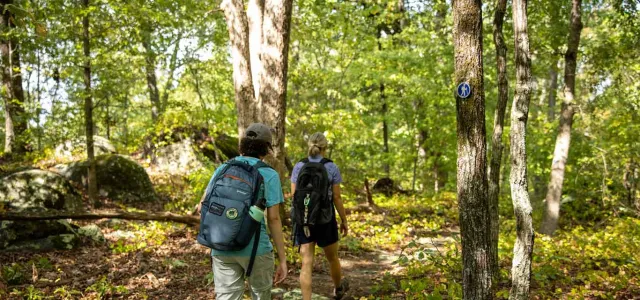ASHEBORO, N.C. — The North Carolina Zoo expanded its lands for local wildlife conservation by adding 139 acres to Ridges Mountain Nature Preserve, increasing it to 423 acres. This addition was a gift from The Conservation Fund made possible by the North Carolina Land and Water Fund and private donors Fred, Alice, Brad and Shelli Stanback.
Ridges Mountain Nature Preserve was established in 2000 when the original property was protected in partnership with the Piedmont Land Conservancy. The latest addition permanently protects the entire mountain as one nature preserve managed by the North Carolina Zoo. This addition brings the total acreage the North Carolina Zoo oversees to 2,805, which includes the 512 developed acres of the North Carolina Zoo’s animal habitats and infrastructure.
"Over 20 years ago, when I served on the North Carolina Natural Heritage Trust Fund board, this portion of Ridges Mountain, with dramatic 40-foot-high boulders, was a top priority for the Piedmont Land Conservancy, the state of North Carolina, and the North Carolina Zoo," said Mike Leonard of The Conservation Fund. “The Conservation Fund is now very pleased to work with the North Carolina Zoo, the North Carolina Land and Water Fund, the Carolina Climbers Coalition and donors across the state to add this property to the Ridges Mountain Nature Preserve. The Fund also appreciates the former owner, Ben Crotts, who made the land available for conservation."
Reaching 840 feet in elevation, Ridges Mountain occurs in the ancient Uwharrie Mountains, approximately 10 miles west of Asheboro, N.C. Ridges Mountain has long been recognized as an important site for the protection of wildlife and unique geological features due to the high-quality natural communities within a large, unfragmented area. This provides an excellent habitat for many plants and animals, such as bobcats, deer, box turtles, and numerous birds. Ridges Mountain is unique because of its massive granitic boulders and basic soils that support uncommon plants in the region, such as fragrant sumac and southern shagbark hickory. Several wetlands provide important breeding habitat for amphibians, such as spotted salamanders.
“I am truly excited to see this property permanently protected,” said Will Summer, executive director of the North Carolina Land and Water Fund, one of the funding sources for this acquisition. “This addition will result in nearly complete protection of the Ridges Mountain natural area, rated exceptional by the North Carolina Natural Heritage Program because it contains a collection of rare plants and natural habitats, including a globally rare type of Upland Pool. I would like to thank The Conservation Fund for championing this project and the North Carolina Zoo for managing and stewarding this property.”
With this addition to Ridges Mountain Nature Preserve, the North Carolina Zoo plans to expand opportunities for environmental education and outdoor recreation at the preserve, including hiking trails and guided hikes. The existing two-mile hiking trail follows the mountain's ridgeline to the summit and then loops back down, highlighting interesting rock formations and massive boulders up to 50 feet tall.
“This acquisition helps the North Carolina Zoo reach its broader vision of natural resource conservation and outdoor recreation,” says Pat Simmons, director and chief executive officer of the North Carolina Zoo. “Ridges Mountain is an exceptional natural space inhabited by unique plant and animal life deserving of appreciation and protection. We could not achieve our vision without partnerships like those we share with The Conservation Fund, and we are grateful to the North Carolina Land and Water Fund and other donors for furthering our mission of saving wildlife and wild places.”
The Ridges trail is available to the public by reservation. Please call 336-879-7711 Monday-Friday, 8 a.m. to 5 p.m., to make a hiking reservation.
To learn more about the North Carolina Zoo’s local conservation programs, visit NCZoo.org/conservation/regional.



